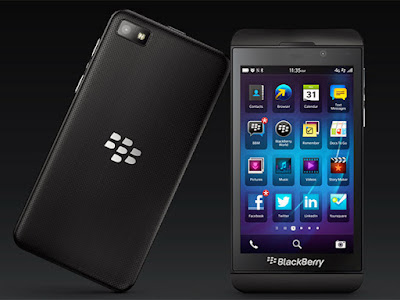Formerly named Research In Motion (RIM), BlackBerry Limited is a Canadian company involved in cybersecurity software and services, numbering businesses and governments among its clients. I only say this to dispel the image of BlackBerry as the smartphone originator that went down in a shrieking ball of flames, outpaced by Apple and Samsung, which devoured both its consumer and business customer base. It would be like labelling IBM a failure for selling its personal computer business to Lenovo in 2005, as they moved to concentrate on cloud computing.
However, BlackBerry did suffer a number of issues that ultimately decided the future direction of the company, coalescing around the release of one phone in January 2013, the Z10. I owned one of these, and despite having owning four iPhones since then, I still think of the Z10 as being a good phone, even still an ideal one in many respects.
My previous two phones were also BlackBerrys (BlackBerries?), a purple Curve 8520 followed by a black Curve 9320. Originally bought because its tiny QWERTY keyboards made sending text messages earlier, these palm-sized devices invented the modern smartphone, shifting me from pay-as-you-go phone calls to stay in touch, to monthly data contracts and productivity on the go, backed by the encryption of BlackBerry’s operating system and messenger software.
The Z10 changed this form factor. Competing at the time with the iPhone 5, the Samsung Galaxy S3, and the upcoming aluminium HTC One, the Z10 jettisoned the keyboard and navigation buttons, and the touch-sensitive navigation pad that replaced an earlier click wheel, bringing in a touch-sensitive screen – for people who needed the original set-up, the BlackBerry Q10 retained a QWERTY keyboard.
The Z10 lacked even a home button, still found on the other three phones, instead using gesture controls like moving a finger up the screen to come out of an app, or up and right to enter the BlackBerry Hub, which collected e-mails, texts and notifications into one place. The virtual keyboard introduced predictive typing, based on what I entered previously, a first for the time. While plastic in construction, the Z10 felt heavy and robust, surviving many drops, and the battery was replaceable, something I now rue when I consider if my current iPhone needs a new battery.

BlackBerry Curve 8520
As intuitive as the Z10’s operating system was, it was plagued by delays and superficially didn’t look too different from Android or Apple’s iOS, especially when those systems were updated, and when app developers moved to concentrate on them instead – I don’t remember downloading many apps on my Z10, having made icons on the home screen that linked to the web browser instead. By the nature of its form factor, the Z10 itself looked like a standard smartphone, and not like a BlackBerry. It also had an odd advertising launch, its SuperBowl ad in 2013 featuring a user of the phone bursting into flames, growing elephant legs, disappearing into a puff of smoke, and turning a crashing petrol tanker into a wave of rubber ducks: “in thirty seconds, it’s quicker to show you what it can’t do,” but the glimpses there were pass too quickly to register.
With Apple and Android phones becoming more attractive propositions in 2013, more people making the switch to smartphones chose these over BlackBerry, the cybersecurity layer of their apps also being matched. By the end of 2013, the company’s leadership had changed, and begun restructuring. The first BlackBerry phone that ran Android instead of their own system was released in 2015, and moved to license their manufacture to outside companies from 2016 – as of 2022, no new BlackBerry phones are being made.
I replaced my Z10 with a new iPhone 6 in 2014, my support for BlackBerry not having wavered despite a massive outage of their servers in 2011 that disabled its services for a number of days. However, their best phone at the time was the Passport, a passport-shaped phone with QWERTY keyboard too wide for me to use with one hand. In hindsight, it was a bad choice at that moment – iOS had only just added predictive text to the keyboard, but the iPhone’s main processor was slightly slower, it had only 1 GB RAM instead of the Z10’s 2GB, the home button was a step backwards from the Z10’s gesture controls, and I could no longer replace the battery. At least the iPhone still had a headphone jack.
 |
| BlackBerry Passport |


No comments:
Post a Comment